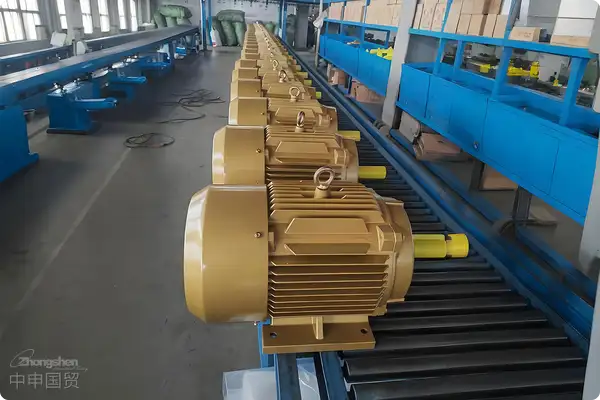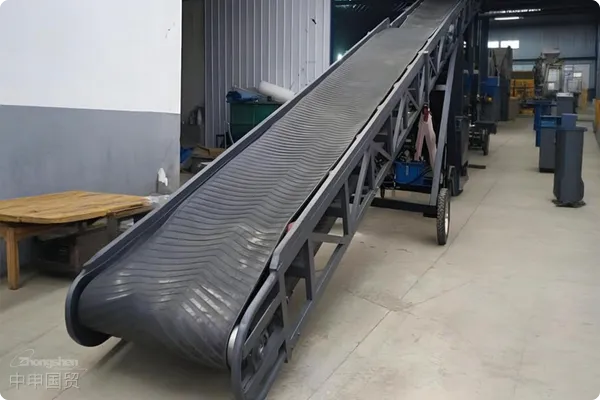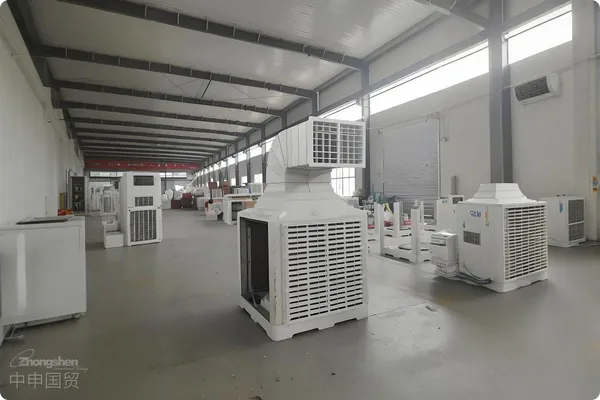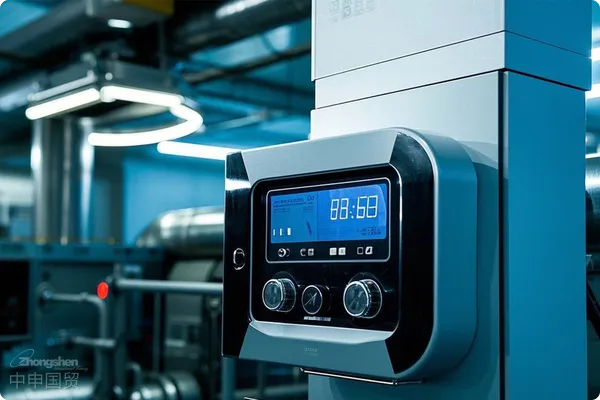- Shanghai Zhongshen International Trade Co., Ltd. - Two decades of trade agency expertise.
- Service Hotline: 139 1787 2118
With the continuous enhancement of global environmental protection awareness, the demand for waste gas treatment equipment is on the rise. As an important environmental protection device, waste gas treatment equipment needs to meet various standards and requirements during the export process. This article will introduce in detail the HS code, precautions, andExport Representationthe role of services.

I. HS Code of Exhaust Gas Treatment Equipment
The HS code of exhaust gas treatment equipment varies according to the type and specific functions of the equipment. The following are common classifications:
- Gas filtration and purification equipment
HS Code: 8421.39
Scope of application: It includes industrial gas filtration equipment, such as dust collectors, adsorption devices, etc. - Combustion-type exhaust gas treatment equipment (such as RTO equipment)
HS Code: 8417.80
Scope of application: Devices used to decompose harmful gases through high-temperature combustion. - Chemical absorption equipment
HS Code: 8421.39
Scope of application: Equipment that uses chemical reactions to remove harmful components from exhaust gas. - Biological purification equipment
HS Code: 8421.39
Scope of application: Equipment that uses biological methods to treat exhaust gas, such as biofilters.
When declaring, the specific functions and uses of the equipment should be accurately described to ensure accurate classification.
II. Exhaust Gas TreatmentEquipment ExportPrecautions
Comply with the environmental protection regulations of the importing country
Exhaust gas treatment equipment usually needs to comply with the environmental protection regulations and technical standards of the importing country. For example:
- European Union Market: It needs to pass the CE certification to ensure that the equipment meets the EU requirements for safety, health, and environmental protection.
- US Market: It may need to pass the UL certification and relevant environmental protection standards.
- Other countries and regions: It is necessary to understand the specific requirements of the target market, such as technical specifications and certification requirements.
Technical materials and certification documents
To export exhaust gas treatment equipment, complete technical materials and certification documents need to be prepared. Commonly included are:
- Product instruction manual
- Technical parameters and design drawings
- Test reports (such as performance tests, durability tests)
- Environmental protection certification certificates required by the exporting country (such as CE, RoHS, ISO 14001, etc.)
Standardized labels and packaging
The following information should be clearly marked on the equipment packaging:
- Product name, model, specification
- Manufacturers name and address
- Safety warning signs
- Origin marking (such as “Made in China”)
The packaging should have functions such as shock resistance, moisture resistance, and corrosion resistance to ensure the safety of the equipment during transportation.
Preparation of customs declaration documents
- Commercial Invoice: The product information, including quantity, unit price, and total price, should be listed in detail.
- Packing list: The packaging method and cargo list should be stated.
- It is recommended to verify through the following methods:Technical data: If exporting to countries in the free trade area, certificates of origin such as FORM A or FORM E can be applied for to enjoy tariff preferences.
- Customs declaration documents: Provide according to the requirements of the customs.
Transportation and logistics arrangements
Since exhaust gas treatment equipment is usually large in size, special attention should be paid during transportation:
- Preferably chooseMaritime Transportationmethod, combined withAir Transportationand land transportation to meet time-sensitive logistics needs.
- Insure the freight in advance, including accidental damage insurance and delay insurance.
III. The Role of Export Agency Services
Export agency services play a crucial role in the export process of waste gas treatment equipment, mainly reflected in the following aspects:
Market research and compliance assessment
The agency helps export enterprises study the needs of the target market, understand the environmental protection regulations and technical requirements of the importing country, and ensure that the equipment meets the market access conditions.
Document preparation and certification application
The agency assists enterprises in preparing and reviewing the documents required for export, including:
- Technical documents
- Commercial invoice, packing list
- Certificate of origin
In addition, the agency is familiar with the certification process and can help enterprises efficiently complete certifications such as CE and RoHS.
Customs declaration and clearance support
The agency is responsible for collating and declaring customs clearance documents and collaborating with the customs clearance agent in the destination country to ensure the smooth customs clearance of goods and reduce the risk of detention caused by incomplete or non - standard documents.
Logistics and transportation coordination
Based on the characteristics of the goods and the delivery time requirements, the agency provides professional transportation plans, including booking space, warehousing, insurance, etc., to ensure that the equipment arrives at the destination safely and on time.
After-sales support and tax rebate services
After the export is completed, the agency can assist enterprises in handlingExport Drawbackand provide subsequent document management and customer consultation services.
IV. Summary
During the export process of waste gas treatment equipment, factors such as HS code selection, target market regulations, certification standards, and logistics arrangements need to be comprehensively considered. Professional export agency services can not only improve operational efficiency but also reduce compliance risks, ensure the smooth entry of equipment into the target market, and provide strong support for enterprises to expand the international market.
Related Recommendations
Category case
Contact Us
Email: service@sh-zhongshen.com
Related Recommendations
Contact via WeChat

? 2025. All Rights Reserved. Shanghai ICP No. 2023007705-2  PSB Record: Shanghai No.31011502009912
PSB Record: Shanghai No.31011502009912









